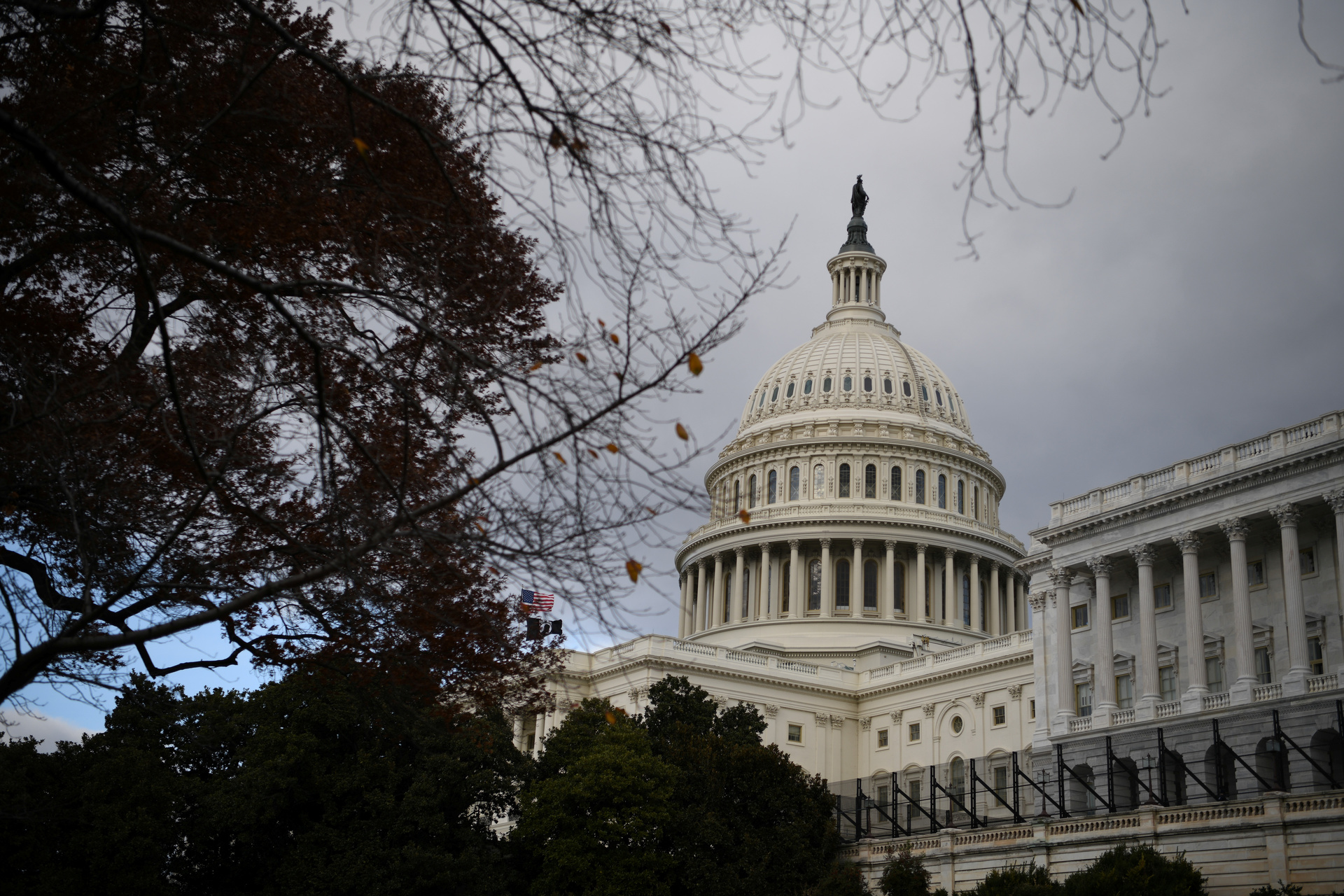The US Senate on Tuesday approved a bill on the defense budget for 2020. The document, called the National Defense Authorization Act (NDAA), includes $ 738 billion in spending, including sanctions against the Nord Stream 2 gas pipeline and military assistance to Ukraine.
The volume of budgeted funding was 3.1% more than last year. The budget in the House of Representatives was agreed on December 9 by 377 votes in favor and 48 against. In the Senate, the document received the support of 86 people with 8 votes against.
For entry into force, the budget must be signed by President Donald Trump. He himself had previously spoken to himself on Twitter that he intended to approve the document immediately after the Senate, since “all his priorities,” in particular, the formation of the Space Forces and the wall on the southern border of the United States, got into the budget.
- US Senate
- Reuters
- © Loren Elliott
At the same time, the document also included financial support for Ukraine in the amount of $ 300 million and sanctions against Nord Stream 2.
Recall that this is the name of a gas pipeline of two sea filaments with a total capacity of 55 billion cubic meters of gas per year, stretching from the Russian coast through the Baltic Sea to Germany.
Budget restrictions against Nord Stream 2 are aimed at foreign companies and persons who sold, leased or otherwise provided ships for the construction of the main line. The document states that it is about vessels that took part in the laying of pipes at a depth of more than 100 feet below sea level.
The list of measures of influence on persons falling under this description in the document mentions the non-issuance and revocation of existing visas and the blocking of their assets located in the United States.
In an interview with RT, the director of the Energy Development Fund Sergey Pikin drew attention to the fact that the companies themselves, which may be subject to sanctions, are not listed in the document, they only have to be established, and after the document has entered into force.
“It takes 60 days to identify these companies, after they are identified, a 30-day period when these companies must curtail their activities in order not to fall under sanctions,” the expert noted.
He also pointed out that Germany is now "very actively pushing in the information field in order to indicate its position for Washington."
According to the position of the German side, Berlin rejects any attacks from outside, as well as extraterritorial sanctions.
“European energy policy is defined in Europe, not in the USA. We fundamentally reject outside attacks and extraterritorial sanctions, ”said German Foreign Minister Heiko Maas on December 12, commenting on the possible introduction of US sanctions against Nord Stream 2.
“Thoroughly examine the specific consequences”
On the eve of the senate’s decision being published, the German newspaper Bild published material on the position of the German leadership regarding American sanctions related to the construction of Nord Stream 2.
The authors of the article call the source a confidential document of the Federal Republic of Germany's Ministry of Economy and Energy.
“The government does not exclude that the announced sanctions will impede pipe laying in the Danish economic zone,” the newspaper quoted the document as saying.
Recall, the last fragment of the gas pipeline, which until recently had no permission, should be laid in Denmark. The leadership of this country approved the work on the gas pipeline at the end of October 2019.
Based on the contents of the document, Berlin sees the likelihood of a scenario that the pipeline can be completed within a 30-day period. Such a time period, according to the law, allows the parties to finish work without penalties for participants.
The material says that the German government, after the signing by the US President Donald Trump of sanctions against Nord Stream 2, intends to "carefully examine the specific consequences", after which a decision will be made on "specific measures" as an answer.
Speaking about the likelihood of the United States imposing sanctions, Stanislav Mitrahovich, an expert at the National Energy Security Fund, a lecturer at the Financial University under the Government of Russia, noted that such a scenario was assumed for a long time.
“At least as far back as 2017, the Act On Counteracting US Adversaries Through Sanctions was adopted. And then the American authorities could impose sanctions, but they still don’t do it, because such sanctions too quarrel between Europe and America in the business sphere. That then these sanctions were dangerous for America in a strategic sense, that now, ”Mitrahovich explained.
We add that in early December, Russian Foreign Minister Sergei Lavrov ruled out that the implementation of Nord Stream 2 would stop due to the actions of the US Congress.
As the minister said, speaking at the Russian embassy in Washington, "Congress is literally overwhelmed with a desire to do everything to destroy our relations with Russia. - RT ."
“The case started by the Obama administration (former US president. - RT ) is ongoing. But we are used to these kinds of attacks, we know how to respond to them. I assure you that neither Nord Stream 2 nor Turkish Stream will stop, ”concluded Lavrov.

